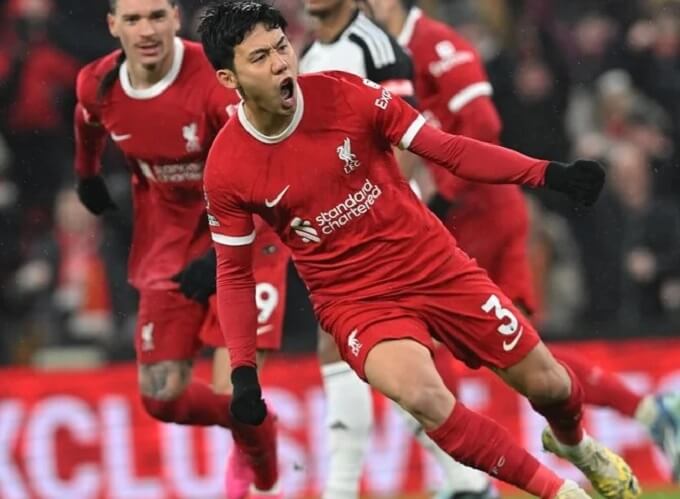- Top
- Entertainment
- Wataru Endo's early life and childhood
Wataru Endo's early life, childhood and career in Japan
Wataru was not a soccer-obsessed child!
Wataru Endo(遠藤 航 in kanji) was born on February 9, 1993 in Yokohama, Kanagawa Prefecture. His "航" (航) represents his parents' wish that he would go on to play an active role outside of Japan.
Wataru is now captain of the Japanese national team and, as of 2024, is a member of Liverpool, one of the most prestigious clubs in the world. Although his title alone would lead one to believe that he was a child of exceptional talent from his youth, his path was not that of a so-called "elite" upbringing.
In elementary school, he was a member of a local youth team that was not very strong. In junior high school, he played in a public junior high school club, and once tried out for selection for a J-League team, but was unsuccessful in the first round. Wataru was just an ordinary boy, chasing a ball in the school yard.
Shusaku, Wataru's father, said, "He was not a soccer-obsessed child. He played baseball, basketball, putt-putt golf, and many other sports. But before I knew it, he was hooked on soccer, and when he entered elementary school, he joined a local youth team called the Minami Totsuka Boys Soccer Club. It was an ordinary team that could be found anywhere and had few coaches. So I joined the team as a coach, having had some soccer experience. I have been watching Wataru ever since, and never once thought he could become a professional.I think his athleticism was rather good, but there was nothing special about his soccer sense or skill."
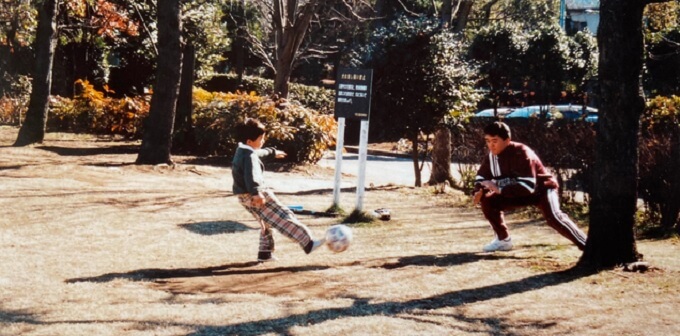
Shusaku continued "I think the biggest reason he was able to become a pro was his humility. I continued coaching him after he graduated and was in the training field for a total of 15 years, but there are very few children who have the ability to listen. The better they are, the less they listen, and the more they get upset when something is said to them.On the other hand, Wataru listened sincerely to advice and put it into practice even when his instructors gave him a hard time. He was able to digest the advice in his own way and incorporate it into his actual play. After the game, when I asked him about the intention of a certain scene, he remembered the positions of his teammates and the enemy, the enemy's aim, etc., and explained in detail. I think his soccer IQ was high."
Sailing at his own pace, he was conscious of what he could do to become better, not how much better those around him were. Players who go on to become professionals are often the ones who stand out on their teams and in their communities. In Wataru's case, however, there were always players around him who were better than he was, whether in elementary school, junior high school, or youth teams. Each time, he set a goal and worked out what he needed to do to achieve it, working backwards from the goal and steadily overcoming his problems. Even when he failed the Yokohama F. Marinos junior youth test, he knew that although he was not at that level now, if he kept improving he would one day catch up and overtake him.
Although Wataru was not accepted into a junior youth team, other clubs invited him to join them. Most people want to go to the strongest team possible, but he decided to play in his junior high school club. The reason was that it was close to home and he could practice in the morning. Even more fortunately, the junior high school's coach was a coach from Kanagawa Prefecture's National Training Center.
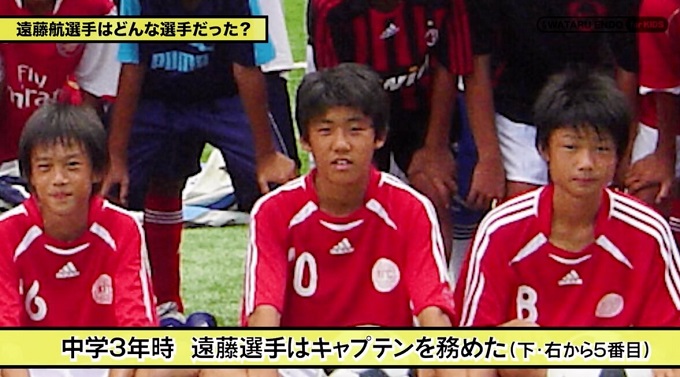
The National Training Center is a nationwide training program in Japan run by the Japan Football Association (JFA). The National Training Center system is designed to provide young soccer players, especially those with great promise for the future, with quality coaching and a place to interact with players at a high level in order to discover the players who will represent Japan in the future. Wataru was converted from FW to CB by the coach, and he practiced and refined his skills.
Another coach, Coach Cho, was also a big factor. Coach Cho was quick to recognize Wataru's talent and brought him into the Shonan youth team after he had failed the Yokohama F. Marinos' selection three years in a row. Coach Cho later became the manager of the U-18 Japan national team and later of Shonan Bellmare, to which Wataru belongs. Wataru himself says, "He is the greatest mentor I have ever had in my soccer career."
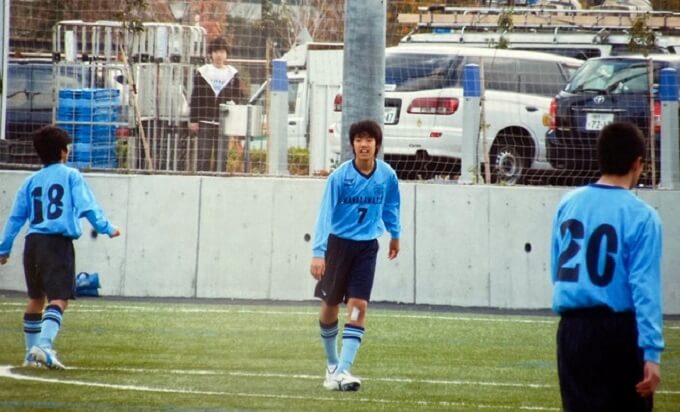
In 2010, Wataru was registered as a player with Shonan Bellmare from Shonan Youth, and in 2011 he was promoted to the first team. In his first year, Wataru played 34 league games, and in 2012, at the age of 19, he was named captain of the team. Despite his unusually large role, Wataru did not flinch.
He said, "I had an image that being captain was a sign of recognition by the team. I was very proud to wear the captain's mark and play for the team. I was very happy when I was appointed, and I felt like I wanted to give it a try."
In addition, Wataru was often asked to be the kicker for penalty kicks, and he scored seven goals in the 2012 season. Manager Cho had a policy of appointing a kicker, and his choice was someone who would not affect the game after he missed a penalty kick. Wataru himself did not care much if he missed a penalty kick.
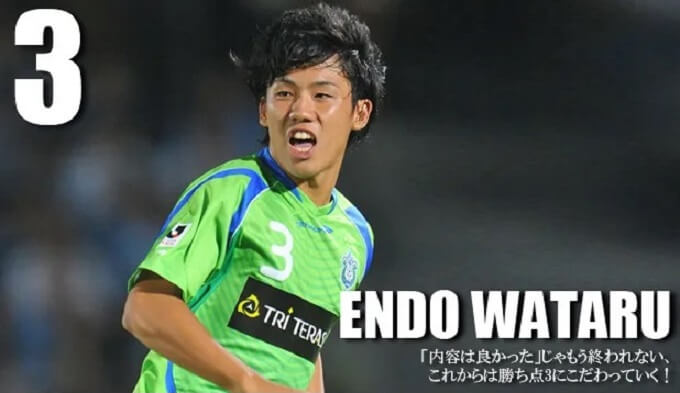
Later, Wataru moved to Urawa Reds and won the J-League Cup in 2016. The final match was a penalty shootout, and Wataru was the fifth kicker to successfully take the penalty kick to seal the victory. Wataru moved to Sint-Truidense V.V. in 2018, to VfB Stuttgart in 2019, and plays for Liverpool F.C. as of 2024.
By the way, one of the players that Wataru admired in his childhood was Steven Gerrard, a legend at his current club, Liverpool. He said, "My childhood idol was Shunsuke Nakamura of Yokohama F Marinos (he also played for Celtic from 2005 to 2009). But as I grew up, I became obsessed with the Premier League. I watched Liverpool games and became a big fan of Steven Gerrard. His shots from outside the penalty area were always great. When my position became CB, I admired John Terry, the Chelsea captain, who also played the same position. He wasn't a very tall guy, but I watched him closely."
sources
- Kota Takai's early life
- Ao Tanaka's early life
- Ayase Ueda's early life
- Daizen Maeda's early life
- Daichi Kamada's early life
- Kaoru Mitoma's early life
- Reo Hatate's early life
- Ritsu Doan's early life
- Takefusa Kubo's early life
- Takehiro Tomiyasu's early life
- Takumi Minamino's early life
- Wataru Endo's early life
